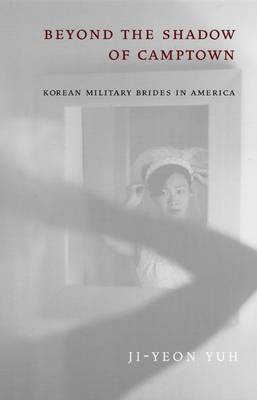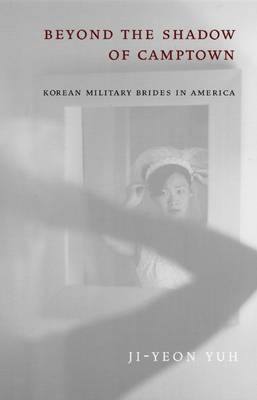
- Retrait gratuit dans votre magasin Club
- 7.000.000 titres dans notre catalogue
- Payer en toute sécurité
- Toujours un magasin près de chez vous
- Retrait gratuit dans votre magasin Club
- 7.000.0000 titres dans notre catalogue
- Payer en toute sécurité
- Toujours un magasin près de chez vous
181,45 €
+ 362 points
Format
Description
Explores the experiences of Korean military brides in the United States
Since the beginning of the Korean War in 1950, nearly 100,000 Korean women have immigrated to the United States as the wives of American soldiers. Based on extensive oral interviews and archival research, Beyond the Shadow of Camptown tells the stories of these women, from their presumed association with U.S. military camptowns and prostitution to their struggles within the intercultural families they create in the United States. Historian Ji-Yeon Yuh argues that military brides are a unique prism through which to view cultural and social contact between Korea and the U.S. After placing these women within the context of Korean-U.S. relations and the legacies of both Japanese and U.S. colonialism vis á vis military prostitution, Yuh goes on to explore their lives, their coping strategies with their new families, and their relationships with their Korean families and homeland. Topics range from the personal--the role of food in their lives--to the communal--the efforts of military wives to form support groups that enable them to affirm Korean identity that both American and Koreans would deny them. Relayed with warmth and compassion, this is the first in-depth study of Korean military brides, and is a groundbreaking contribution to Asian American, women's, and "new" immigrant studies, while also providing a unique approach to military history.Spécifications
Parties prenantes
- Auteur(s) :
- Editeur:
Contenu
- Nombre de pages :
- 283
- Langue:
- Anglais
- Collection :
- Tome:
- n° 25
Caractéristiques
- EAN:
- 9780814796986
- Date de parution :
- 01-07-02
- Format:
- Livre relié
- Format numérique:
- Genaaid
- Dimensions :
- 161 mm x 234 mm
- Poids :
- 557 g

Les avis
Nous publions uniquement les avis qui respectent les conditions requises. Consultez nos conditions pour les avis.






